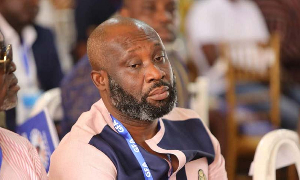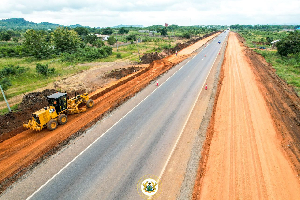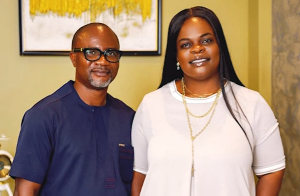As is customary, indeed inevitable and necessary, at the turn of each year, various economic and financial institutions, both at home and abroad, venture their forecasts as to how the Ghanaian economy can be expected to perform.
Such forecasts come from government itself, the two Bretton Woods institutions – the World Bank and the International Monetary Fund – other multilateral institutions such as the African Development Bank and privately-owned economic and financial research driven firms such as the sovereign credit rating institutions and specialist econometric modelling companies.
These forecasts cover a range of key performance indicators including economic growth, inflation, fiscal performance, exchange rates, trade and external finance performance and positions.
eholds to aggregate them into usable and fairly accurate predictions of future trends for economic decision making purposes.
However due to the most unusual circumstances at the start of this year, forecasts for the most key performance indicator vary so drastically that it becomes extremely difficult to decide which forecasts are realistic and which ones are completely off the mark; forecasts for Ghana’s economic growth for 2021 – as measured by change in Gross Domestic Product – range from the IMF’s 0.9 percent to government’s 5.8 percent. In summary the Bretton Woods institutions have predicted very low growth (the World Bank envisages 1.4 percent growth for Ghana this year) while government’s optimism of a complete rebound to 5.8 percent – which if achieved would be one of Ghana’s best performances over the past decade – appears to have rubbed off on the privately owned researchers, who however rely heavily on official data from Ghana’s government and thus inevitably tend to come up with similar results to the official forecasts.
The scope of COVID 19’s impact this year is an obvious reason for the uncertainty surrounding the forecasts. A Ghana that completely falls victim to a second round of the virus would not perform anywhere near as well as a Ghana that evades another surge in infections. Here government will not have much control; its political interests have completely overridden its interest in accessing and delivering vaccines for its populace for now and the populace itself currently shows very little enthusiasm for self discipline with regards to observing the requisite protocols. If a second wave of infection does occur there will be little to stand in its way.
Government’s acclaimed prudence in fighting the virus aside, Ghana – like most of the rest of sub Saharan Africa – got away with evading the first wave largely through divine intervention and it is any one’s guess whether its good fortune will prevail for a second year running.
But whether it does or not, a major cause for uncertainty is the issue of how government goes about managing the macro-economic situation caused by last year’s first wave of infection, and how the impacts of whatever economic management stance it chooses, will pan out.
The main reason why the IMF and the World Bank have downgraded their 2021 economic growth forecasts for Ghana, is that the surge in the public debt – which is the real cost of government’s exemplary success in curbing COVID 19 and its consequent economic impacts – has the potential to act as a drag on the country’s economic performance this year. They therefore expect government to revert to demand management policies to reign in the fiscal deficit and depress the public debt to GDP ratio back below the 70 percent universally accepted debt sustainability threshold as soon as possible. This of course would adversely affect short term economic growth.
But both institutions point out that if government continues its preferred expansionary policies on the genuine grounds that the country still needs major economic stimulus – but which it can no longer afford – the rising debt and the inordinate cost of financing it would curtail economic growth anyway. Thus they believe that with regard to economic growth in 2021, Ghana is damned whether government goes austere or whether it tries to spend its way out of the economic slump begun last year due to COVID 19.
But government on its own part believes that stimulus spending can spur a sharp economic rebound by using the inherent capacity that went unused last year, and plans to get the private sector to stump up most of the money required through its Ghana CARES programme. If it succeeds indeed economic grow would rebound although as the economy returns towards full capacity utilization this would increasingly translate into accompanying surge in inflation and faster cedi depreciation.
With so many factors and possibilities at play, even seers would be hard put to prophesize accurately as to the fate of Ghana’s economy in 2021. Indeed, the prudent attitude for stakeholders in the Ghanaian economy in 2021 is therefore to beware the perils of prophecy.
Editorial News of Monday, 18 January 2021
Source: goldstreetbusiness.com













